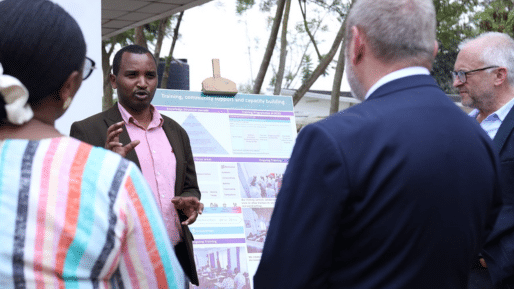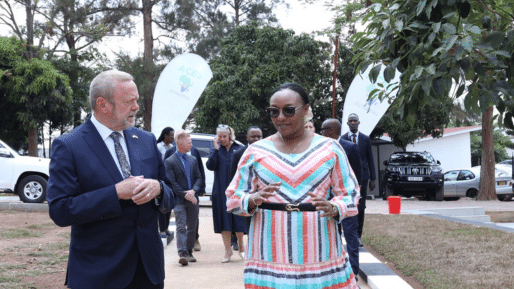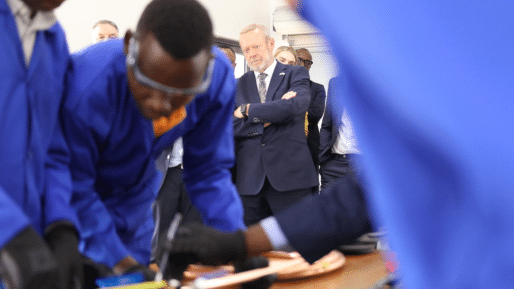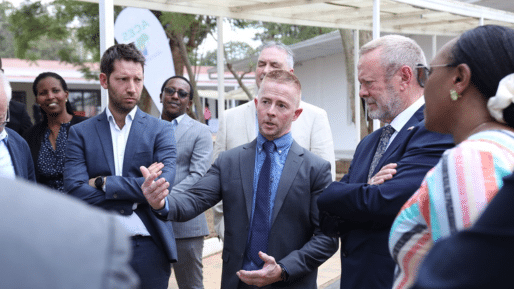In early September, the UK Minister for Africa, Lord Collins, visited the Africa Centre of Excellence for Sustainable Cooling and Cold-chain (ACES) in Kigali, Rwanda during the Africa Food Systems Annual Summit to get a closer look at new solutions to underpin food security, economic stability, and public health in the country.
Officially launched in 2020, the Programme has been enabled by over $20m of funding from the UK Government. ACES is a collaborative effort led by UNEP U4E in partnership with the University of Birmingham through the Centre for Sustainable Cooling, the Government of Rwanda, and Rwandan academic partners.
The aim is to accelerate the deployment of sustainable, equitable and resilient cold-chain solutions in Africa to respond to the urgent need to improve livelihoods and well-being. According to the University of Birmingham, less than half of the food that requires cooling is refrigerated, leading to substantial food losses that could otherwise feed around 1 billion people if properly preserved.
The trip follows the recent UK announcement to commit a further £1.8M for the programme. “The UK’s cold-chain doesn’t begin at our ports – it begins at the farm in Africa. The global population continues to rise, and food demand is expected to increase significantly by 2050. The majority of uncultivated arable land is in Africa.
But ramping up food production and building large commercial farms are not the answer. We have to think about the 500 million smallholder farmers in Africa and integrate them into the value chains and make sure they have the access to robust and sustainable cold-chains”, said Lord Collins during the visit.
ACES expands in Africa and India
The project has moved from concept to a physical campus in Kigali within its first four years. The Government of Rwanda spearheaded the construction of a brand-new demonstration hall and extensive refurbishment of the campus. New equipment is arriving for use in training and testing. Also, the first Specialised Outreach and Knowledge Establishment (SPOKE) is getting underway in Kenya to serve showcase ACES solutions in real-world community settings.
Further SPOKES in Africa are in development including in Senegal to allow for a variety of practical demonstrations and trainings, with lessons learned and support exchanged back with the ACES hub in Kigali. A second Centre of Excellence also reached a major new milestone in India with the State Government of Haryana committing funding to build key facilities per a Detailed Project Plan prepared by the international technical team, with insights from our work on ACES.
“As the Centres of Excellence Programme transitions from design and development to implementation and impact, the ambition is to become the ‘industry-standard’ multi-level resource to share new data, innovation pathways, methodologies, skills, practices and policies through this integrated, system-level approach across the whole cold-chain which is now being demonstrated, tested and rolled-out into markets globally through a reference approach”, said Stephen Cowperthwaite, Centre of Excellence Lead at UNEP U4E.
Rwanda has been a champion of sustainable cooling in various areas, with its capital as the namesake for the Kigali Amendment to the Montreal Protocol. ACES and the system-level approach are now being recognized as leading work that will impact people’s lives globally, aligning closely with key objectives of resilience, sustainability, equality, diversity, and inclusion.
To learn more about ACES and how to get involved, click here, or contact Alice Moreau, Partner Engagement and SPOKEs Lead, UNEP U4E, alice.moreau@un.org.



